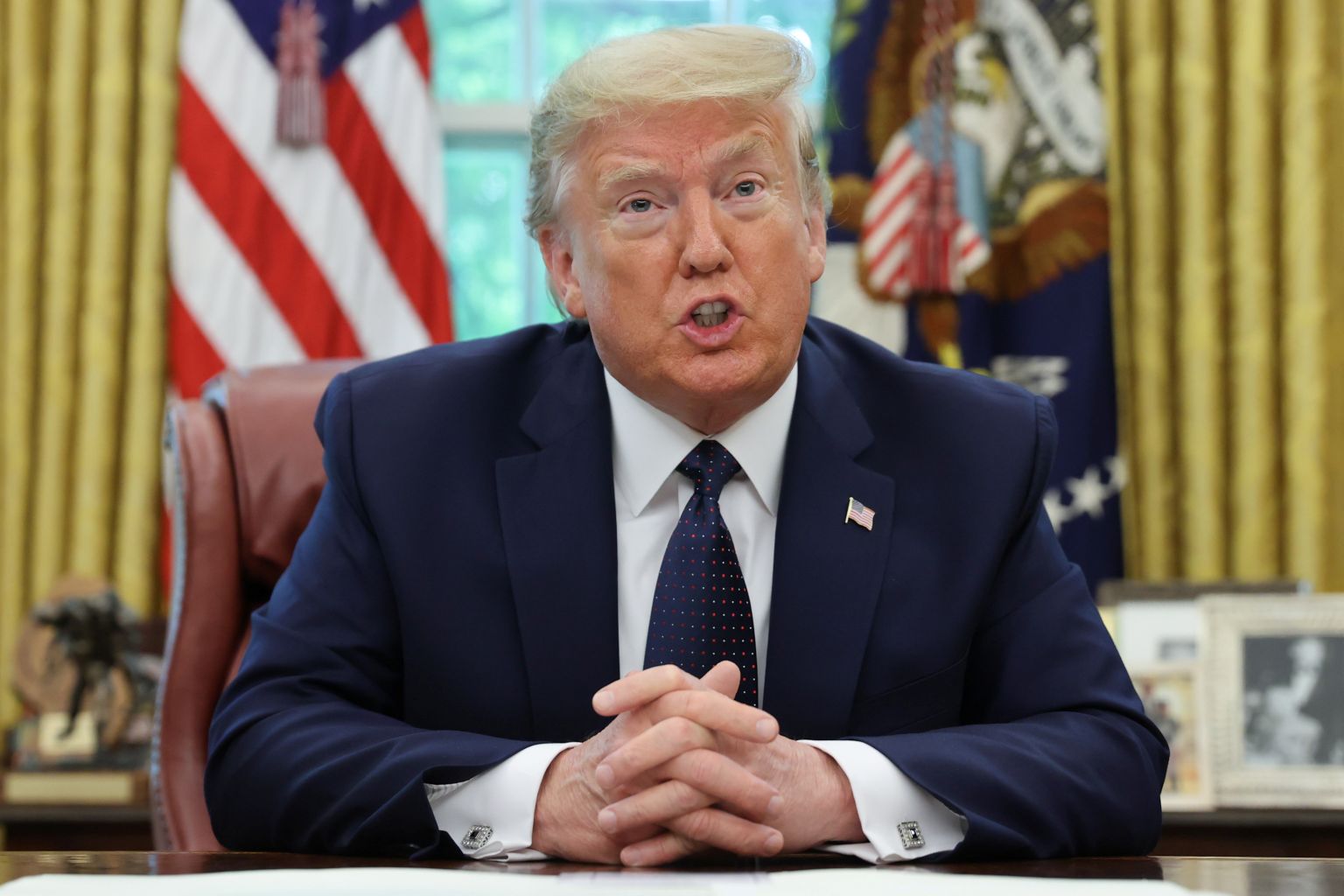Ahead of Trump announcement, Pompeo says US to act on alleged spying by Chinese students
Sign up now: Get ST's newsletters delivered to your inbox

Trump speaks to reporters at the White House in Washington, May 28, 2020.
PHOTO: REUTERS
Follow topic:
WASHINGTON (AFP) - The United States will take action to prevent alleged espionage by Chinese students, US Secretary of State Mike Pompeo said on Thursday (May 28), ahead of an expected announcement by President Donald Trump.
Trump earlier said that he will hold a press conference on Friday about China amid soaring tensions between the two powers, including over the status of Hong Kong and the novel coronavirus pandemic.
Asked about a report in The New York Times that Trump was considering throwing out thousands of graduate students, Pompeo said that Chinese students "shouldn't be here in our schools spying."
"We know we have this challenge. President Trump, I am confident, is going to take that on," Pompeo told Fox News, while declining to say if action would be announced on Friday.
"We have an obligation - a duty - to make sure that students that are coming here to study... aren't acting on behalf of the Chinese Communist Party," Pompeo said.
The New York Times said that the Trump administration was considering annuling visas for thousands of graduate students linked to China's military.
The move would be certain to draw criticism from universities, which rely increasingly on tuition from foreign students - of which China and India are the largest sources - and have already been hit hard by the Covid-19 shutdown.
Asian American activists have long voiced concern that the targeting of Chinese students impacts their own community, with US citizens of Asian ancestry coming under unjustified suspicion.
"This isn't a red scare, this isn't racist. Chinese people are a great people," Pompeo said when asked about the concerns.
"This is like the days of the Soviet Union. This is a communist, tyrannical regime that poses real risk to the United States," he said.
Trump, in remarks to reporters, declined to preview the press conference on Friday but said, "We're not happy with China."
The press conference will come two days after Pompeo certified to Congress that Hong Kong was no longer autonomous from China, as promised by Beijing before Britain handed over its colony in 1997.
The announcement will also take place on the same day that Britain and the United States want the UN Security Council to meet informally behind closed doors to discuss the situation in Hong Kong, according to diplomatic sources.
China has been pressing forward with the drafting of a security law that Hong Kong activists say will end freedoms enjoyed in the financial capital, which was rocked by months of pro-democracy protests last year.
Washington and Beijing are already clashing over responsibility for the extent of the coronavirus pandemic, which was first detected in China but has spread worldwide and caused devastation in the United States.
Domestic critics accuse Trump of mismanagement and say that the 100,000 US deaths and massive unemployment were the result of a slow, patchy federal response to the virus' spread across the world's biggest economy.
But Trump blames the crisis on China and for a long time insisted on calling the Covid-19 sickness the "Chinese virus."
He has threatened to cut off US funding for the World Health Organisation, accusing the UN body of bias toward Beijing and assisting in a cover-up.
The White House was also incensed by a conspiracy theory spread by a Chinese foreign ministry official that the US army had brought the virus to China in the first place.
A major theme of Trump's first term was a trade war with China, which he has repeatedly and forcefully accused of gaming international trade rules to get an advantage over the United States.
Despite the tensions, which reached a partial resolution in the signing of this January's "phase one" trade deal, Trump also consistently praised Chinese leader Xi Jinping as a friend.
Trump had been hoping to tout the results of the trade deal as one of his major achievements going into the November presidential election, but the economic havoc caused by the coronavirus pandemic has upended that.
Asked on Thursday if he would commit to the terms of the trade deal, Trump said "we are not happy with China. We're not happy with what's happening."
"All over the world, people are suffering (from coronavirus), 186 countries," he said.

